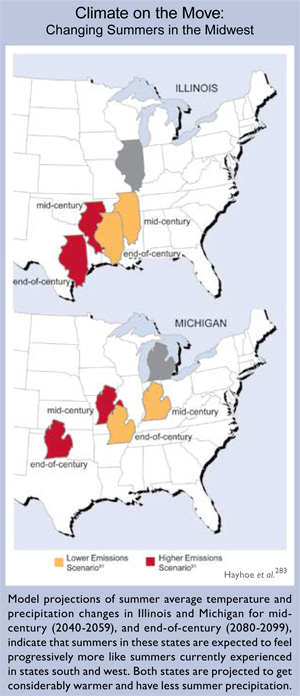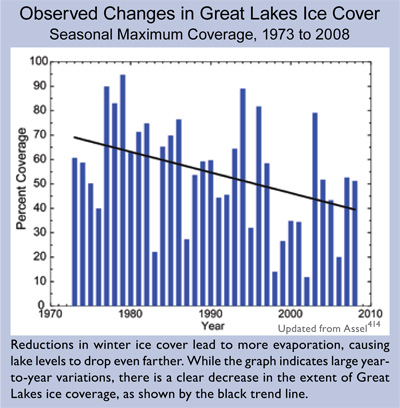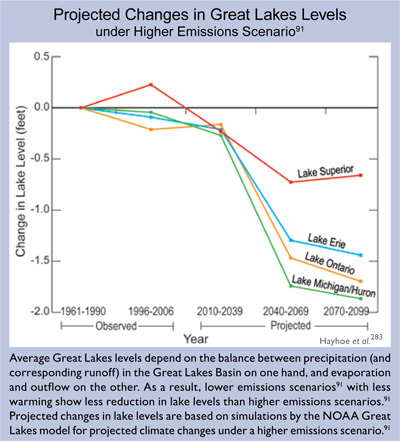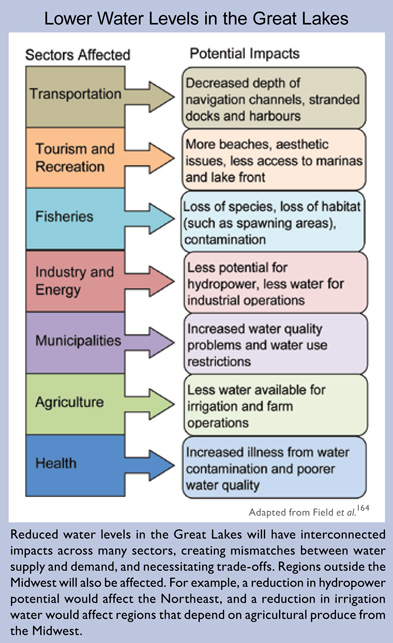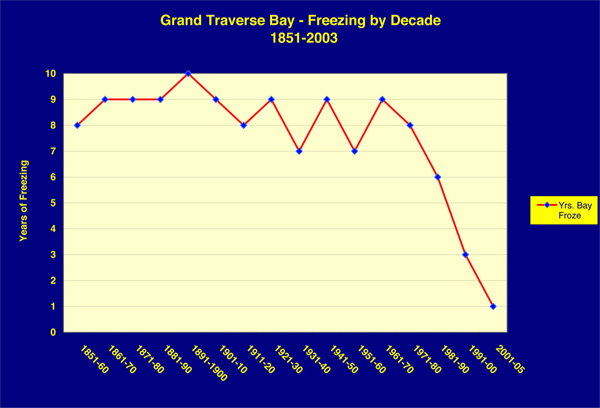Climate Change in Michigan
|
Learn more from the Center for Media and Democracy's research on climate change. |
In response to the landmark US government Global Climate Change Impacts in the United States[1] the Detroit Free Press published a summary of expected impacts from
climate change on Michigan and the Great Lakes.[2]
The Global Climate Change Impacts in the United States study, is a product of the combined scientific and technical experts in the United States Government, including the National Oceanic and Atmospheric Agency, the Department of Agriculture, the Department of Defense, NASA, the Smithsonian Institution, and numerous leading University Scientists from across the country.
The Free Press reported that "By the end of this century, Michigan could face more simmering Texas-style heat in summer, more Seattle-like downpours in other seasons and levels of some Great Lakes that are as much as 2 feet lower. Those are among the worst-case scenarios in a new study on climate change compiled by 13 federal agencies. Past reports have targeted the global effects of rising global-warming gases, but the latest report covers findings for the United States."[2]
Contents
Articles and resources
|
Images from "Global Climate Change Impacts in the United States". |
|
NSF to Study Effects of Climate Change on Tart Cherry GrowersThe National Science Foundation recently awarded a $1.5 million grant to Michigan State University and an international research team to study climate change and the tart cherry industry. According to the Great Lakes Echo, "It is a good industry to study because cherry orchards are sensitive to weather and require long-term investment – about a 20-30 year commitment. Growers have limited options to adapt when compared to annual cereal grains where they can plant something new the next year.[3] In the prime growing area around Traverse City, MI, it used to be common that Grand Traverse Bay would freeze over in the winter. Now the bay consistently remains unfrozen. An unfrozen bay stems from warmer winter weather that usually means an earlier blossoming of tart cherry trees. With earlier buds, the cherries are more vulnerable to damage from a late spring freeze. |
Related SourceWatch articles
References
- ↑ U.S. Global Change Research Program, report "Global Climate Change Impacts in the United States", U.S. Global Change Research Program, June 2009.
- ↑ 2.0 2.1 Tina Lam, "Big climate change headed Michigan's way, study says", Detroit Free Press, June 21, 2009.
- ↑ Climate change study to help cherry growers assess global supply, markets and competitors"Steven Davy, Great Lakes Echo, Nov.6, 2009"

